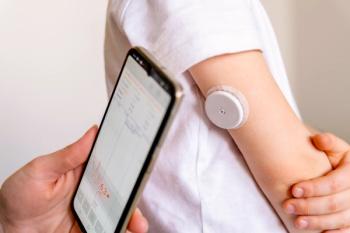
Digital Health
Latest News

Latest Videos
CME Content
More News

The COVID-19 pandemic has highlighted the importance of remote cancer care, in which notable gaps in care should be addressed, according to a new study.

Steven Deitelzweig, MD, system chairman of hospital medicine at Ochsner Clinical School, professor of medicine at the University of Queensland, discusses key findings from a recent study on the accuracy of atrial fibrillation detection devices.

Sara Horst, MD, MPH, FACG, gave physicians tips on maintaining the personable aspects of in-person appointments during telehealth appointments and shared how digital health has helped her treat patients.

Lisa Rometty, CEO at Zerigo Health, discusses the challenges and opportunities for growth within the digital health landscape, as well as how Zerigo plans to collaborate with patients and payers to make sure digital health tools are accessible and affordable.

A new study aimed to summarize publicly available coverage policies of commercial health insurers for digital medicine services.

Tariq Cheema, MD, division chair of pulmonary critical care sleep and allergy medicine at Allegheny Health Network (AHN), discusses how the virtual ICU (vICU) program has benefited patients and their families during the COVID-19 pandemic in terms of both patient care and managing resources.

Lisa Rometty, CEO at Zerigo Health, discusses digital health innovations, strategies, and partnerships to improve the lives of patients living with chronic skin conditions.

Carmen Solórzano, MD, FACS, of Vanderbilt University Medical Center (VUMC), discusss how VUMC uses technology to advance cancer treatments and her current research.

Patients with diabetes may benefit from the support of remote patient monitoring (RPM), according to one study.

Compared with other industries, in the health care space, challenges connected to the use of artificial intelligence (AI) include processing reimbursements and clinical operations.

Standardizing Digital Health Interventions for Depression May Improve Patient Adherence, Study Finds
Standardized reporting of patient adherence and engagement among digital health interventions for depression offers more effective comparisons between digital health tools and populations.

Significant differences in video telehealth use were observed in rural and urban populations, especially among American Indian/Alaska Native veterans, a new study has found.

Pfizer considers cost-cutting as demand for COVID-19 products lag; Amazon Clinic aims to provide virtual care for common health concerns; Black patients may find new Alzheimer drugs less effective

Tennessee Oncology collaborated with Smirta to develop the platform.

Barriers to acceptance included privacy concerns and fears about the possibility of misinterpretation of messages.

Highly resourced accountable care organizations (ACOs) were more likely to offer digital health services.

The shrinking gap was mainly driven by mobile device use.

Researchers at Rock Health compared digital health funding, deal size, and other metrics in the first half of 2023 with previous years.

This small study showed that individuals who used an app designed specifically for smokers ambivalent about quitting used the app more often and exhibited greater changes in behavior compared with those using a similar nontailored app.

Explanatory studies, conducted under tightly controlled circumstances, could hinder the integration of technology in clinical settings by underreporting key study characteristics.

Patients often relapse after discharge from acute care because of long waits for outpatient treatment, lack of specialized therapists, out-of-pocket costs, and inadequate social support.

Patients who participated in a COVID-19 patient home monitoring program were satisfied with their care and stated that their participation made them less likely to seek care in the emergency department.

Technical, economic, and political factors led to notable disparities between high-income and low-and middle-income countries, an international assessment shows.

A direct-to-consumer telemedicine service resulted in lower per-episode unit costs for care within 7 days and only marginally increased the use of services overall.

This study describes financial issues that influenced telemedicine provision and use for patients with chronic conditions and their providers during COVID-19.

















